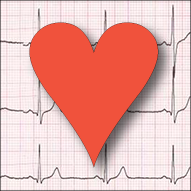My Healthcare Journey has followed a meandering path. With loops. Now there’s another one bend in the road. Maybe this one will head in a better direction.
As I’ve said a few times, the drug they put me on to regulate my heart rhythm, diltiazem, has had similar side effects to the beta blockers I had been on. I knew I was going to have a follow up with the cardiologists, which was due soon, but I hadn’t been offered an appointment.
On Wednesday afternoon, the “SuperClinic”, as it’s called, rang to tell me there’d been a cancellation for Thursday at 3pm, and did I want the appointment? I snapped it up—not the least because I had no idea when I’d be offered an appointment otherwise. But I also was eager to consult with them about the drugs I’m on.
As it turned out, the weather yesterday was a terrible: Windy, rainy, and with sometimes frequent downpours. I left the house earlier than I needed to to give myself extra time, and ended up getting there roughly a half hour early. On the way, I battled several downpours, and I was still hobbling a bit, so I was stressed.
Not surprisingly, my blood pressure was high, but my ECG was normal, and so was the sound of my heart when the doctor listened. He also asked me about how I was doing, and in the end he said that I clearly wasn’t suited for beta blockers, and the Diltiazem was the best drug for me, especially since there weren’t a lot of other drugs available. There was one that could damage the thyroid, liver, and several organs (I don’t remember which ones because I’d stopped listening by then—it wouldn’t be an option for me). That drug required strict monitoring, including blood tests every three months—maybe more often.
So, instead, he decided to halve the dosage on my statin, atorvastatin. He told me something I vaguely remember being told in hospital, namely that atorvastatin and diltiazem fight each other, resulting in making the bad effects of diltiazem worse. By cutting the dosage of atorvastatin, he hopes it will reduce the fatigue I’ve been experiencing. We’ll see.
The doctor also increased the dosage of cilazapril, the drug I had been taking to control my blood pressure since I had the stent. The dosage had been increased, then when I was in hospital in September, they cut in half—literally: I was asked to cut the tiny tablets in half. He put it back to a full tablet because he felt my blood pressure was too high (and they keep telling me that the drug has "heart protective properties").
Today was the first day on the new dosages, and I did feel a little better—less tired. However, I’m still not totally healthy, so my perception may not be accurate. And, in any case, it’s only the first day.
The other day I mentioned feeling sick, and I thought it was the flu-like feeling that comes with a gout attack. However, the joint soreness and stiffness waned, but my “flu-like symptoms” didn’t. I’ve since realised it was actually a “flu-like condition”, quite possibly a hayfevery sort of thing, or maybe just a cold. I have no idea.
In any event, this sickness, whatever it is, will soon be over, and I’m already walking more normally, so those things are improving. Now, if the new drug dosages really work, everything will be great.
Clearly this journey isn’t over yet. Let’s just see what’s around this next bend.
Important note: This post is about my own personal health journey. My experiences are my own, and shouldn’t be taken as indicative for anyone else. Similarly, other people may have completely different reactions to the same medications I take—better or worse. I share my experiences because others may have the same or similar experiences, and I want them to know that they’re not alone. But, as always, discuss your situation and how you’re feeling openly, honestly, and clearly with your own doctor, and always feel free to seek a second opinion from another doctor.


No comments:
Post a Comment